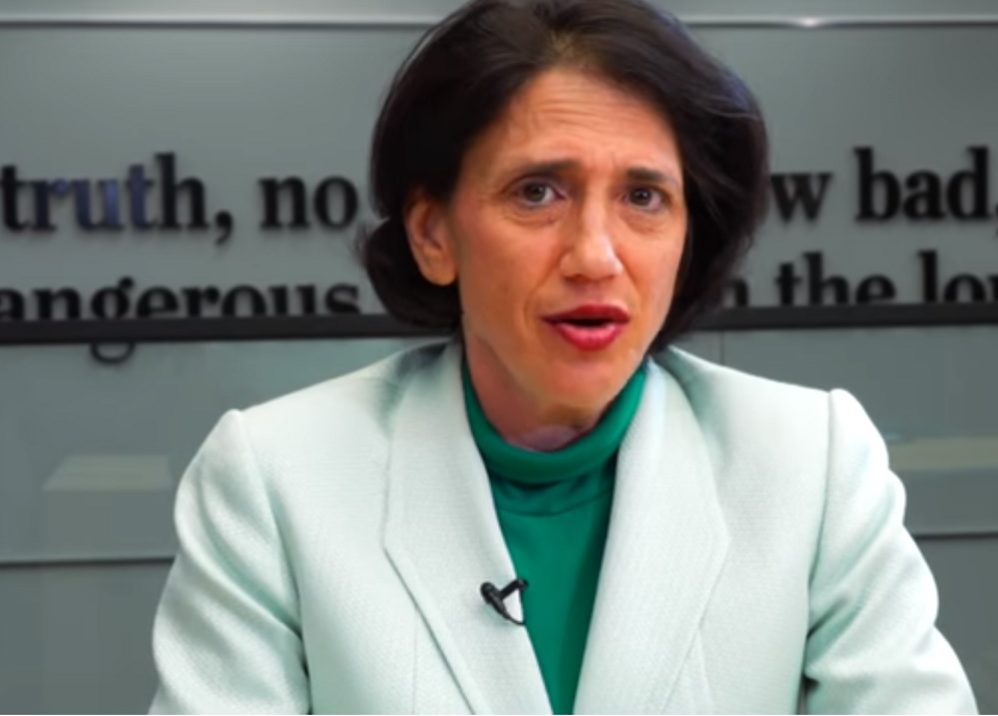Call it a seasonal epiphany four and a half years in the making, but late is always better than never. As you are already aware, on December 19, Christianity Today editor Mark Galli declared, “Trump Should Be Removed from Office.” And right on cue, the modern day Judases–Franklin Graham and Jerry Falwell, Jr.–exacted another down payment on their souls in exchange for proximity to power and past donations from the Trump Foundation. (NOTE: As some commentators have pointed out, Galli’s major concern was not the fate of American democracy and values, but the credibility of the evangelical movement. Even if it was self-serving, I learned a long time ago, never criticize someone for doing the right thing, even if their motives are suspect.)
 As welcomed as Galli’s denunciation of Donald Trump as an immoral human might be, I am afraid his salvo was misdirected. In the age of social media influencers, Galli would have been better served by addressing his remarks, not to the flock, but to the shepherds. How do you expect the minions to understand what they have become when members of the clergy, who weekly preach the gospel to them, remain silent or fail to draw on their own training as pastoral counselors to point out the hypocrisy of evangelical devotion to Trump.
As welcomed as Galli’s denunciation of Donald Trump as an immoral human might be, I am afraid his salvo was misdirected. In the age of social media influencers, Galli would have been better served by addressing his remarks, not to the flock, but to the shepherds. How do you expect the minions to understand what they have become when members of the clergy, who weekly preach the gospel to them, remain silent or fail to draw on their own training as pastoral counselors to point out the hypocrisy of evangelical devotion to Trump.
Imagine if Galli had chosen a different tack in which he does not humble the masses, but shames the messengers for abdicating their role as moral influencers. Consider the following as an alternative to the December 19 editorial.
The dilemma of reconciling one’s political support and Donald Trump’s lack of a moral compass is not a collective one for the evangelical movement, but a personal one for each and every member of your congregation. And one that demands the clergy provide pastoral counseling as we are taught “to mirror the way Jesus cared for people and taught his disciples to do the same.”
Make it personal. Ask your congregants, “Would any of you be okay if you came to me for spiritual renewal and I told you Christ is okay with …
- satisfying one’s lust by committing adultery?
- constantly comparing your accomplishments and possessions to others?
- expressing anger at anyone who disagrees with you?
- equating success with net worth?
- indifference to the suffering of others?
- bearing false witness to justify your actions?
- overindulgence or excessive desire for material goods?
- the ends justifying the means?”
Would you call someone who lived their life based on such advice a true Christian? Would you look to that person for leadership or as a role model? I would hope not. But you have.
As Jesus says in Matthew 22:21, “Render to Caesar the things that are Caesar’s; and to God the things that are God’s.” You can leave governance to our political leaders, but you must never let them become the arbiters of your values. And when they try, you must reject them.
But the evangelical community is not alone. Every day we watch professionals in every walk of life excuse Trump for behavior they know is wrong. The latest example emerged in this morning’s edition of our local paper which includes a regular op-ed column titled, “Coach’s Corner.” The author Howard Pines is a local resident who presents his credentials as follows.
…has more than 30 years experience as CEO, chairman and founder of BeamPines, a premier firm in the executive coaching business.
Today’s edition with the title, “Presidential Tantrums,” compares Trump to other commanders-in-chief who were known to let off a little steam on occasion. These include (drum roll) George Washington, Theodore Roosevelt, Harry Truman and Dwight Eisenhower. Can you say “moral equivalency?” I knew you could. But the icing on the cake comes in the final paragraphs which include the following two sentences.
I believe that Trump’s mannerisms are not unique, and if history remains true, his actions to date do not threaten our democracy.
My sense is the real question with President Trump is will he retain a first rate team, and does he have the objectivity and clarity of judgment to not let his emotions color his decisions.
Let’s take these one at a time. I do not know what history books Mr. Pines reads but they must not include the evolution of any nation in which fascism emerged as a viable ideological alternative. My history books document how none were more democratic when the dictator who led the movement left office voluntarily or involuntarily.
As for sentence #2, remember Mr. Pines is an executive management coach. Imagine him telling any corporate client, “Don’t worry if you’ve gone through several chiefs of staff, communications directors, department heads. Give it more time. Let’s see if it works out. Just keep doing what you’re doing.” Or after observing the CEO’s behavior for three years, making the following report to the board of directors, “I know the boss is a little thin-skinned and sometimes it hurts the bottom line, but he’s only been CEO for three years. Maybe he’ll grow into the office. And I know you’re concerned he hasn’t shown you the books in three years. I’m sure he’s not hiding anything.”
“Galli” gee, I “Pines” for the day when we hold the president of the United States to the same standard we hold the person who sits next to us in a house of worship, the CEO of a major corporation or just the people we call friends.
For what it’s worth.
Dr. ESP
 I find, there was nothing I, as I said before there’s nothing wrong with the call, and when you look at it, and again I frankly, the last…
I find, there was nothing I, as I said before there’s nothing wrong with the call, and when you look at it, and again I frankly, the last… 47 While he was still speaking, Rudy, one of the Twelve, arrived. With him was a large crowd of Fox News prime time hosts with cameras and microphones.
47 While he was still speaking, Rudy, one of the Twelve, arrived. With him was a large crowd of Fox News prime time hosts with cameras and microphones.  I have been thinking about this since November 8, when the Washington Post published an op-ed piece by Jennifer Rubin titled, “Just what we need: Another billionaire Democratic candidate.” The reference was, of course, to Michael Bloomberg’s pending announcement whether he would enter the 2020 contest for the Democratic nomination. Rubin gives several reasons why she thinks Bloomberg’s late and media based campaign will fail. And suggests the former New York mayor would be a welcome foil for other candidates who have been in the race for most of 2019.
I have been thinking about this since November 8, when the Washington Post published an op-ed piece by Jennifer Rubin titled, “Just what we need: Another billionaire Democratic candidate.” The reference was, of course, to Michael Bloomberg’s pending announcement whether he would enter the 2020 contest for the Democratic nomination. Rubin gives several reasons why she thinks Bloomberg’s late and media based campaign will fail. And suggests the former New York mayor would be a welcome foil for other candidates who have been in the race for most of 2019. As I have said in previous blog entries, I hate it when I’m right. Such was the case as exit polls Thursday night signaled an overwhelming victory for Boris Johnson’s Conservative Party. With 365 of 650 seats in the House of Commons, voters in the United Kingdom (and I use the term “united” loosely) gave the Tories a mandate. The problem? Nobody seems to be quite sure what the mandate is for. Prime Minister Johnson ran largely on the platform of finalizing Brexit, something polls suggest a majority of citizens still oppose.
As I have said in previous blog entries, I hate it when I’m right. Such was the case as exit polls Thursday night signaled an overwhelming victory for Boris Johnson’s Conservative Party. With 365 of 650 seats in the House of Commons, voters in the United Kingdom (and I use the term “united” loosely) gave the Tories a mandate. The problem? Nobody seems to be quite sure what the mandate is for. Prime Minister Johnson ran largely on the platform of finalizing Brexit, something polls suggest a majority of citizens still oppose.